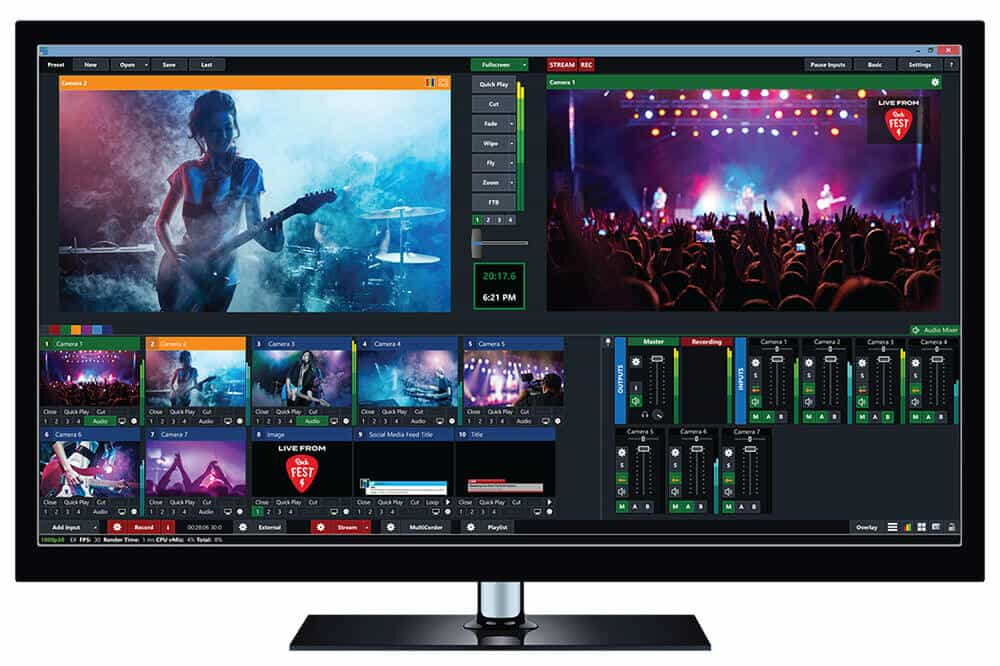MARKET OVERVIEW
Global Smart Construction market is estimated to reach $76,483.3 Million by 2031; growing at a CAGR of 11.4% from 2024 to 2031.
The Global Smart Construction market represents a new era in construction processes, combining cutting-edge technology with traditional methods to create efficient, sustainable, and intelligent building solutions. By integrating digital tools, innovative materials, and automation technologies throughout the construction lifecycle, this market aims to increase productivity, reduce costs, and enhance project outcomes. From design and planning to operation and maintenance, smart construction utilizes modern innovations such as IoT, AI, BIM, and robotics to address the complexities of delivering modern infrastructure needs. This digital transformation has revolutionized the construction industry, offering advanced solutions to optimize efficiency, sustainability, and safety. By incorporating digital technologies into every phase of construction, such as BIM for virtual modeling and robotics for automation, the Global Smart Construction market is paving the way for faster, safer, and more environmentally friendly construction projects. As sustainability becomes increasingly important, smart construction will focus on green building and renewable energy systems to create eco-friendly urban spaces. The future of the Global Smart Construction market will continue to expand into various project segments, reshaping the construction industry and driving technological and industrial progress.

GROWTH FACTORS
The increasing demand for sustainable and energy-efficient construction practices is a significant growth factor in the industry. With a growing emphasis on environmental concerns, stakeholders are focusing on green designs and materials to minimize carbon footprints while maintaining energy efficiency standards. Smart construction solutions play a pivotal role in this transformation, aligning with global sustainability objectives and contributing to a greener future. However, challenges such as the high initial investment required for smart technologies and the shortage of skilled labor could impede the market's growth. On the bright side, the development of smart cities and mega-infrastructure projects presents exciting opportunities for the Global Smart Construction market, driving innovation and advanced construction solutions. Moving forward, strategic investments and workforce development will be key to unlocking the market's true potential, leading to smarter and more efficient construction processes that redefine the industry landscape.

MARKET SEGMENTATION
By Technology
The Global Smart Construction market is at the forefront of revolutionizing the construction industry through the incorporation of innovative technologies and novel solutions. By embracing modern tools and practices, this market is reshaping traditional construction processes towards smarter, more efficient, and sustainable practices. Through these advancements, productivity challenges are being addressed, and urgent issues like project delays, cost overruns, and safety concerns are being mitigated. Building Information Modeling (BIM) plays a crucial role in providing a digital representation of the entire construction project lifecycle, enhancing collaboration among stakeholders and facilitating informed decision-making. With its ability to minimize errors, reduce waste, and ensure accurate project execution, BIM is poised to become a standard practice in construction, laying the groundwork for the development of smarter and more sustainable buildings. Artificial Intelligence (AI) is another key component of the Global Smart Construction market, leveraging big data analytics to optimize project planning, identify risks, and streamline operations. Through machine learning algorithms, AI can identify patterns to prevent structural failures and improve material usage, leading to significant time and resource savings, as well as enhanced safety for workers and end-users. The integration of Internet of Things (IoT) technologies enables the collection of real-time data on equipment performance, environmental conditions, and worker safety, facilitating proactive decision-making on construction sites. Robotics and automation are transforming construction practices by handling repetitive and hazardous tasks with precision, reducing the reliance on manual labor, and enhancing workplace safety. These advancements not only expedite project timelines but also maintain high-quality standards. Furthermore, 3D printing in construction is revolutionizing construction methods by providing faster and more cost-effective solutions, minimizing waste, reducing material costs, and enabling intricate designs. Augmented Reality (AR) and Virtual Reality (VR) technologies offer immersive visualization and training tools, with AR overlaying digital models onto physical spaces for precise installations, and VR simulating virtual environments for planning and worker training. The Global Smart Construction market is paving the way for a more efficient, sustainable, and technologically advanced future in the construction industry.
By Component
Global Smart Construction is set to revolutionize the construction industry by integrating innovative technologies and methodologies into its operations. Divided into three key categories - hardware, software, and services - this market is paving the way for a more efficient, sustainable, and technologically advanced approach to construction. The hardware sector encompasses cutting-edge tools and equipment such as drones, robotics, sensors, and connected devices, enhancing precision, productivity, and safety on construction sites. Software plays a crucial role in managing various construction aspects, with tools like project management systems, BIM, and simulation software optimizing planning, monitoring, and resource allocation. The integration of AI and machine learning enables predictive analytics, aiding decision-makers in anticipating challenges and refining strategies. Services including consulting, training, and maintenance further support businesses in maximizing the value of smart technologies, guiding the transition to innovative construction processes for long-term success. With urbanization, sustainability awareness, and technological advancements driving its growth, the Global Smart Construction market is poised for explosive expansion, ushering in a new era of connectivity, data security, and modular construction processes. Ultimately, this market presents a transformative opportunity for the construction industry, reshaping how buildings and infrastructure are developed and maintained by leveraging the potential of hardware, software, and services.
By Application
The Global Smart Construction market is revolutionizing construction project planning, execution, and management through the integration of advanced technologies like artificial intelligence, robotics, and Internet of Things (IoT). These tools enhance efficiency, sustainability, cost-effectiveness, and productivity in construction processes, leading to improved accuracies, reduced waste, meeting deadlines, and compliance with safety and environmental standards. Covering residential, commercial, industrial, and infrastructure sectors, smart construction solutions are reshaping the industry by creating energy-efficient homes, dynamic commercial spaces, automated industrial facilities, and durable infrastructure projects. By leveraging technologies like Building Information Modeling, predictive analytics, and smart sensors, the Global Smart Construction market is poised for continuous growth and innovation, driving efficient and sustainable development practices for the future.
By End-User
The Global Smart Construction market is at the forefront of transforming the construction industry by leveraging innovative technologies to enhance efficiency, reduce costs, and promote sustainability. Integrating artificial intelligence, the Internet of Things, and robotics has enabled the sector to overcome traditional challenges and revolutionize the way structures are designed, built, and managed. The adoption of smart technologies is poised to surge in the coming years as industries and governments recognize the immense potential they offer. Key end-user categories such as contractors, architects and engineers, government entities, and facility managers are set to benefit significantly from these advancements, with streamlined project timelines, accurate material requirements forecasting, precise designs, and enhanced operational efficiency being just a few of the advantages. The smart construction market is paving the way for smarter cities, more sustainable infrastructure, and improved decision-making processes, heralding a new era of progress and innovation in the construction sector.
REGIONAL ANALYSIS
The Global Smart Construction market is experiencing rapid growth and transformation, driven by advancements in technology that are reshaping the construction industry. North America, with countries like the United States, Canada, and Mexico, is at the forefront of adopting innovative technologies like building information modeling and IoT solutions to enhance efficiency and precision in construction projects. In Europe, countries such as the UK, Germany, France, and Italy are focusing on sustainable building practices and integrating smart construction tools to comply with environmental regulations. The Asia-Pacific region, led by China, India, Japan, and South Korea, is embracing digital construction technologies to support rapid urbanization and infrastructural development. South America, particularly Brazil and Argentina, is gradually incorporating smart construction practices to address infrastructure challenges. Additionally, the Middle East, Africa, and other regions are also beginning to invest in modernizing their construction practices to keep pace with global trends. As each region adds its unique characteristics to the smart construction market, the industry continues to evolve and expand.

KEY INDUSTRY PLAYERS
The Global Smart Construction market is experiencing substantial growth due to technological advancements that are revolutionizing the construction industry. This market focuses on incorporating intelligent solutions to improve efficiency, safety, and sustainability in construction projects. Key technologies involved include automation, data analytics, building information modeling (BIM), and Internet of Things (IoT) applications. With the increasing demand for smart cities and sustainable infrastructure worldwide, the Global Smart Construction market is set to play a significant role in shaping urban development in the years to come. Leading companies such as Autodesk Inc., Bentley Systems, Trimble Inc., and Leica Geosystems AG are driving innovation in design, project management, surveying, and geospatial solutions. Additionally, machinery manufacturers like Caterpillar Inc. and Komatsu Ltd. are integrating automation and AI into construction equipment to boost productivity and minimize environmental impact. Oracle Corporation, Procore Technologies, Dassault Systèmes SE, Hexagon AB, Siemens AG, ABB Ltd., and others are developing platforms and tools to enhance project management, simulation, analysis, and monitoring for smart construction practices. As global urbanization accelerates, these technologies are crucial for meeting the demand for sustainable construction practices and ensuring efficient and safe infrastructure development. The future of the construction industry lies in predictive analytics, robotics, and cloud-based platforms, which will streamline processes, reduce costs, and improve overall quality. Collaboration among industry players and a focus on technological leadership will be key in driving the evolution and success of the Smart Construction market.
REPORT SCOPE AND SEGMENTATION
|
Attributes |
Details |
|
Market Size By 2031 |
USD 76,483.3 Million |
|
Growth Rate |
CAGR of 11.4% |
|
Forecast period |
2024 - 2031 |
|
Report Pages |
250+ |
|
By Technology |
|
|
By Component |
|
|
By Application |
|
|
By End User |
|
|
By Region |
|
|
Key Market Players |
|



_page-000166.jpg)
_page-000168.jpg)
_page-000167.jpg)
_page-000165.jpg)






 APAC:+91 7666513636
APAC:+91 7666513636





